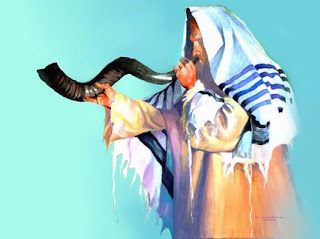
After the great wars with the Lamanites that followed the conversion of the people of Ammon, Alma laments the destruction caused by evil:
Alma 29:1-2This mirrors the concept in ancient Israel that the priests were the teachers of the law (see Lev 10:10-11; Deut 33:10; Jer 18:18; Ezekiel 44:23). What is intriguing is that there are a few texts that also link this priestly function of teaching the law and judging to an angelic/priestly assignment.
1 O that I were an angel, and could have the wish of mine heart, that I might go forth and speak with the trump of God, with a voice to shake the earth, and cry repentance to every people!
2 Yea, I would declare unto every soul, as with the voice of thunder, repentance and the plan of redemption, that they should repent and come unto our God, that there might not be more sorrow upon all the face of the earth.
The book of Malachi is a message or oracle from God to his people through his priest/angel. It begins with “the word of Jehovah to Israel through Malachi" ('my messenger' or 'my angel'). In chapter two, the messenger accuses the other priests of not performing their duties adequately in, among other things, teaching the law:
Malachi 2:7In the context of corrupt priests and broken covenants, Malachi is told that the priest (כֹהֵן) should be an angel (מַלְאַ֥ךְ -malak, 'messenger') in the context of imparting knowledge of the LORD. The priests were to teach the law, to instruct the difference between clean and unclean. They were rebuked because they were not giving instruction like they should and were told that the priests in this function were angels of the Lord.
7 For the priest's lips should keep knowledge, and they should seek the law at his mouth: for he is the messenger (Heb malak, can also mean angel) of the LORD of hosts.
This incident becomes the starting point for a whole priestly/angelic teaching theme developed among the Qumran community. In 4Q400 fr I i (Songs for the Holocaust of the Sabbath), the priests (as angels) impart divine knowledge of judgment and mercy for those who repent. Crispin H. T. Fletcher-Louis makes a fairly good case for direct points of contact between the language here and Malachi 2:7 (All the Glory of Adam: Liturgical Anthropology in the Dead Sea Scrolls [Leiden: Brill, 2002], p. 284). In 4Q511 fr 35 (Songs of the Sage), God, angry at the wickedness of man, appoints a community of priests as angels to terrify and subdue the wicked. This theme is picked up in the New Testament in the book of Revelation, where the priestly leaders of each church in Asia called to repentance were named angels (e.g., 2:1, 3:1, etc.). Later, seven angels would come out of the temple dressed in the clothing of priests (15:6) to receive vials full of the wrath of God against the wicked (15:7).
In Zechariah 3, Joshua the High Priest is taken into the Holy of Holies before the angel of the Lord and commissioned to judge Israel. In return, the angel promises: “and I will give thee places to walk among these that stand by” (Zech 3:7), referring to the angels that ministered in the temple. The word 'walk' here (mahlek) is the same used by Ezekiel describing a walkway near priestly chambers in the temple (Eze 42:4; “And before the chambers was a walk of ten cubits breadth”). Joshua, the priest, is given the divine command to judge Israel at the same time he is given his priestly clothing and told he will walk with angels in the temple.
In this context, Alma is in good company. As a High Priest, Alma sorrows at the wickedness of his people and desires to preach repentance and judgment as an angel.



